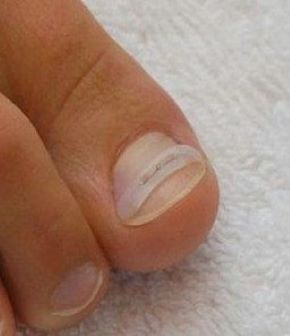Plantar warts are skin lesions that develop on the sole of the foot and/or toes after direct contact with the virus HPV (human papillomavirus). There are several strains of HPV which are responsible for the development of plantar warts. Plantar is an anatomic term that refers to the sole (bottom) of the foot. The medical term for plantar wart is verruca plantaris.
Exposure is by means of direct contact with a contaminated surface. The virus has the ability to remain active on surfaces for several months. The virus may enter through tiny openings/breaks in the skin. Examples of commonly contaminated surfaces include public showers (including hotel showers), the area around swimming pools, and mats used publicly at gyms including those used for yoga, Pilates, martial arts, and dance. Caution should also be taken if renting equipment such as bowling shoes and kayaks.
Pressure from walking may push the lesion inward. The portion of the lesion that is not visible can be twice the size of what is actually seen. The wart may look spongy and often appears to be peppered or have splinter like structures. These dark areas are the tips of thrombosed blood vessels which supply the virus with a lifeline. The lesions may not cause any discomfort at all. Lesions may grow to one inch in diameter or several lesions may cluster together forming a mosaic wart.
Lesions may be self limiting and resolve on their own or they may spread to other parts of the foot or body. Multiple treatments exist as no one treatment is optimal. Over the counter treatments are available, however, they tend to be ineffective as plantar warts are deep and require periodic debridement (shaving) of the lesion at the doctor’s office.
Professional treatment may involve various prescription topical preparations, electocautery, injectable medication, and Cryotherpay. Cryotherapy uses liquid Nitrogen and is quiet effective if the lesion is debrided properly and the liquid Nirogen is applied long enough. The doctor will discuss the risks, benefits, costs, and efficacy of the various treatment options to help you to determine which is right for your particular case. Certain individuals may be more susceptible to plantar wart development due to previous exposure or a weakened immune system. Even after clinical resolution of the lesions, they may recur due to the virus lying dormant in healthy skin.






